View a comprehensive calendar of events.
Tuesday, November 4
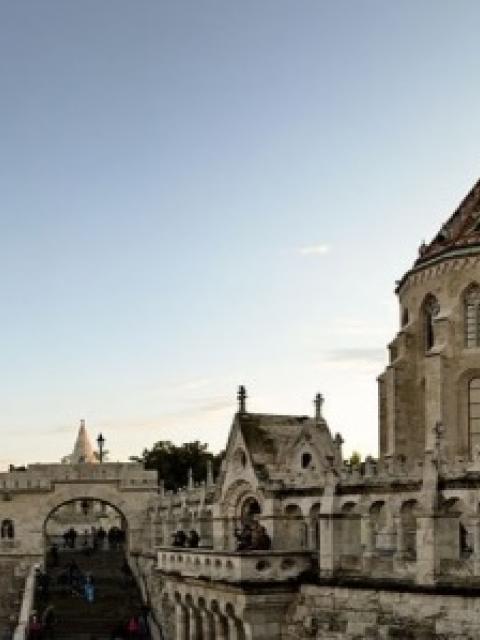
Tuesdays, 4-5pm
Braun Room (12th Floor), Cathedral of Learning
Come to chat, practice, meet others who are interested in Hungarian and Hungary! All levels are welcome.
For more info, contact Dr. Viktoria Batista (vib21@pitt.edu)
Wednesday, November 5
Russian program students: Are you looking to practice Russian? Stop by the Global Hub on Mondays and Wednesdays from 1-3 pm, starting on October 6 and ending December 10, to meet with Russian tutors and prepare for tests, get help with homework, and more.
Monday, November 10
Russian program students: Are you looking to practice Russian? Stop by the Global Hub on Mondays and Wednesdays from 1-3 pm, starting on October 6 and ending December 10, to meet with Russian tutors and prepare for tests, get help with homework, and more.
Tuesday, November 11
Attention: Undergraduate students! Are you looking to gain experience that will help prepare you for a globally-connected job market? Stop by Drop-In Hours to learn more about getting the Global Distinction added to your academic transcript, receiving special recognition at graduation, and standing out to prospective employers!

Tuesdays, 4-5pm
Braun Room (12th Floor), Cathedral of Learning
Come to chat, practice, meet others who are interested in Hungarian and Hungary! All levels are welcome.
For more info, contact Dr. Viktoria Batista (vib21@pitt.edu)
Wednesday, November 12
Russian program students: Are you looking to practice Russian? Stop by the Global Hub on Mondays and Wednesdays from 1-3 pm, starting on October 6 and ending December 10, to meet with Russian tutors and prepare for tests, get help with homework, and more.

An immersive podcast concert that delves into how art and storytelling reveal the human experience of war. Featuring Yemeni artist Haifa Subay and Ukrainian filmmaker/poet Oleksandr Frazé Frazénko - both current PiNTS (Pittsburgh Network for Threatened Scholars) scholars.
Developed by Pitt students under the mentorship of journalist David Greene (formerly of NPR), and Pitt faculty Sean Guillory and Shannon Reed, the podcast shares voices of resilience, displacement, and creative resistance.
Thursday, November 13

Pitt Alumni Nicholas Gasquet will present on the Peace Corps application process and his own personal experiences in Indonesia and Senegal as a current Peace Corps Volunteer.
Gasquet graduated from Pitt in 2024 with a major in political science, minors in economics and history, and an African Studies certificate.
The Peace Corps allows you the opportunity to serve in 60+ countries around the world in Africa, Central and East Asia and Latin America.

Join us for the FINAL EVENT in our Ukrainian Storytelling Series, held at the beautiful St. Peter and St. Paul Ukrainian Orthodox Church in Carnegie PA, a hub of our local Ukrainian community.
We’ll start off with a full Ukrainian dinner, followed by incredible performances of folktales and songs from some of Pittsburgh’s most compelling talent.
You’ll also hear from Ukrainian veterans, visiting from Ukraine, whose personal experiences and insights will be woven through these ancient stories.
Afterward, you'll have a chance to connect with our Ukrainian guests and share your own thoughts on the stories, songs and insights of the evening.
Friday, November 14
In 1945, Shikl Gershberg sang a song about the massacre by German and Romanian troops that killed 437 people in his small Ukrainian town in July 1941. It ended with the haunting line: "Our town of Zhabokrych became a cemetery." For many years, the song was the only memorial to Gershberg's family and community. A physical monument remained unrealized due to restrictions by Soviet authorities. This paper, based on newly discovered archival materials, oral histories, and memoirs, examines how Soviet citizens dealt with state prohibitions against public commemorations of Holocaust victims, and engaged in personal and communal acts of remembrance after the war. Part of the Socialist Studies Seminar series.

NOTE: location and date have changed!
- OLD INFO: 5PM NOV. 7TH IN 4130 POSVAR
- NEW INFO: 4:30 PM NOV. 14TH in 4217 POSVAR HALL
Join CMU Associate Professor of Russian Studies Tatyana Gershkovich for the launch of this new book, translated and edited with Stephen H. Backwell, and recently published by Academic Studies Press!
Yuli Aikhenvald was one of the most popular and influential Russian literary critics of the early 1900s. His major book, Silhouettes of Russian Writers, went through six ever-expanding editions. A major presence in Vladimir Nabokov’s early career, Aikhenvald has since been neglected by other writers and critics. This collection translates several of Aikhenvald’s key essays, making him available to English-speaking readers for the first time.
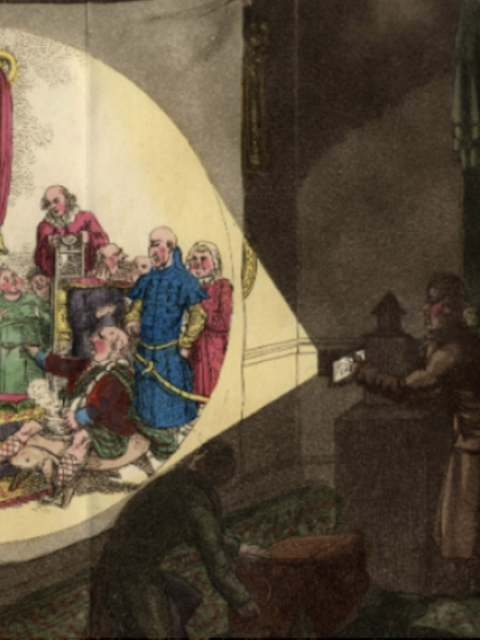
Step back in time and witness the spellbinding spectacle that inspired the birth of cinema! Join us for a real magic lantern show, a live performance that brings to life one of the most captivating forms of nineteenth-century visual entertainment.
Our special guest, professional lanternist Brett King (North Carolina), will present a mesmerizing program featuring adaptations of beloved fairy tales and holiday-themed slides celebrating Halloween and Christmas. The show will be accompanied by pianist and composer Tom Roberts, one of the world’s leading exponents of early jazz piano.
A family-friendly event recommended for kids 12 and up and for younger adventurers who aren't afraid of ghosts!
Admission is FREE, but registration is required. Please register via the link (https://docs.google.com/forms/d/1P76a_R8zCvD09N31XmsOy86qYInqSVguzezyBYx...)
Sponsored by: Dietrich School of Arts and Sciences | Center for Russian, East European, and Eurasian Studies | Department of Slavic Languages and Literatures | Film and Media Studies Program | Horror Studies Center | Nationality Rooms and Intercultural Exchange Programs
Monday, November 17
Russian program students: Are you looking to practice Russian? Stop by the Global Hub on Mondays and Wednesdays from 1-3 pm, starting on October 6 and ending December 10, to meet with Russian tutors and prepare for tests, get help with homework, and more.

Rapid population aging is a modern phenomenon that has been transforming societies across the globe. Roundtable participants will present their research of different aspects of aging from the role of grandparents in modern societies to the place of technology in accommodating older people across the globe.
Lunch reception: 12:30–1:30 PM

Students in Serbia have over the past 12 months mobilized much of the country in opposition to the corrupt authoritarian government in place there since 2013. The movement is unusual in several ways. First, it has no obvious leaders but is instead guided by plenums on the various university faculties throughout the country, coordinated by social media. Second, instead of staging a few large demonstrations in big cities, students have walked throughout the entire country, spreading their message to villages and small towns as well as cities – and they are everywhere greeted as heroes. Third, the focus of demonstrations is not loud protests but instead 16 minutes of silence in honor of the 16 people killed in a tragedy in Novi Sad on 1 Nov. 2024, which had been the result of the corruption that underlies the government. Finally, they have included communities long marginalized, especially the Bosniaks of Sandžak/ Novi Pazar. By November 2025 the government has been reduced to relying on brute force and their near-total control over mass media; but the students keep mobilizing via social media and direct actions. This talk will be an overview of the movement over the past year.
Tuesday, November 18
Attention: Undergraduate students! Are you looking to gain experience that will help prepare you for a globally-connected job market? Stop by Drop-In Hours to learn more about getting the Global Distinction added to your academic transcript, receiving special recognition at graduation, and standing out to prospective employers!
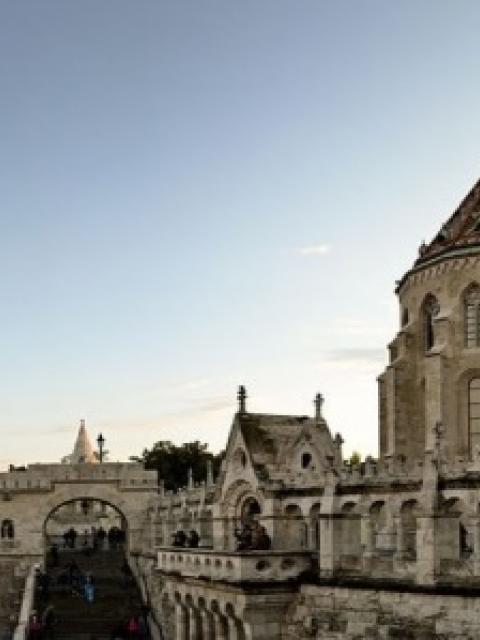
Tuesdays, 4-5pm
Braun Room (12th Floor), Cathedral of Learning
Come to chat, practice, meet others who are interested in Hungarian and Hungary! All levels are welcome.
For more info, contact Dr. Viktoria Batista (vib21@pitt.edu)
Wednesday, November 19
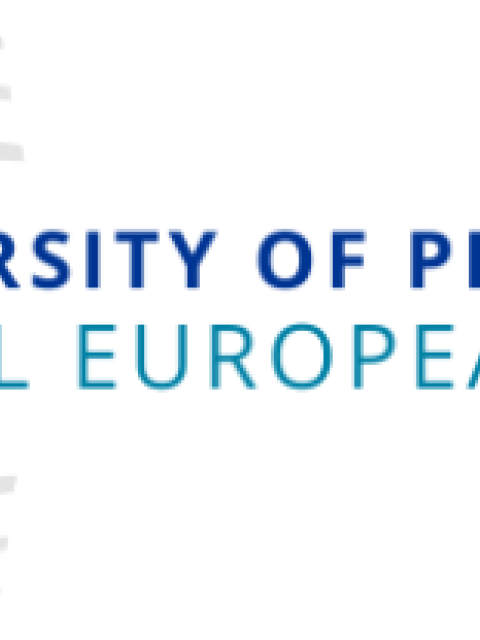
The High School Model European Union is an annual event for area high school students. The goal of the Model EU is to give high school students a chance to learn about the workings of the European Union through a hands-on simulation. Playing the roles of presidents and prime ministers, students spend a day engaged in intense negotiations over conflicting issues about the EU. The objective is to simulate a specific European Council meeting that focuses on recent current events impacting the EU. Model EU enhances students’ understanding of classroom learning and gives them a real sense of the challenges involved in the decision-making process of the European Union.
Russian program students: Are you looking to practice Russian? Stop by the Global Hub on Mondays and Wednesdays from 1-3 pm, starting on October 6 and ending December 10, to meet with Russian tutors and prepare for tests, get help with homework, and more.
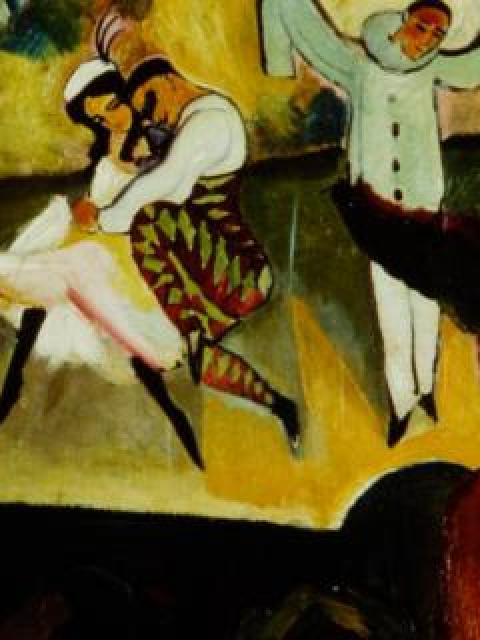
This webinar is the third in a six-part series, The Arts of Eastern Europe and Eurasia, designed to support K-14 educators in bringing the arts of Russia, Eastern Europe, and Eurasia into their classrooms. During this session, we will learn about the Russian ballet as a powerful cultural force shaped by political, religious, and aesthetic pressures from the 19th to the 20th century. We will examine how ballet was viewed by critics, dancers, and administrators—as both an “impossible” art form and a near-religious practice of survival and expression. Educators will gain tools to connect performing arts with broader historical and cultural themes, enriching classroom discussions around artistic expression under authoritarian regimes, the role of tradition in modernity, and how art can serve both resistance and conformity.
Monday, December 1
Russian program students: Are you looking to practice Russian? Stop by the Global Hub on Mondays and Wednesdays from 1-3 pm, starting on October 6 and ending December 10, to meet with Russian tutors and prepare for tests, get help with homework, and more.
Tuesday, December 2
Attention: Undergraduate students! Are you looking to gain experience that will help prepare you for a globally-connected job market? Stop by Drop-In Hours to learn more about getting the Global Distinction added to your academic transcript, receiving special recognition at graduation, and standing out to prospective employers!
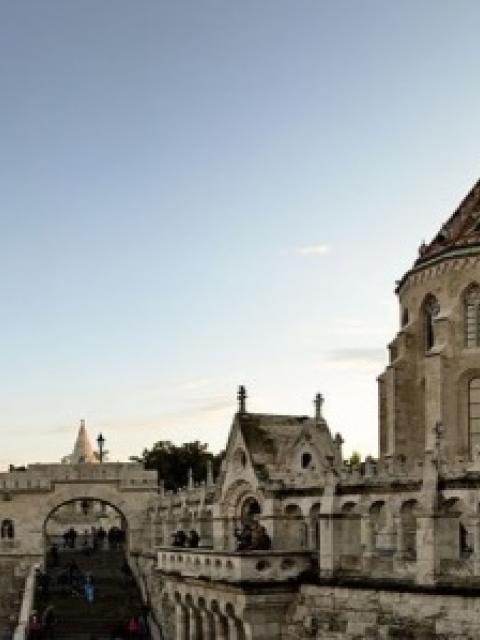
Tuesdays, 4-5pm
Braun Room (12th Floor), Cathedral of Learning
Come to chat, practice, meet others who are interested in Hungarian and Hungary! All levels are welcome.
For more info, contact Dr. Viktoria Batista (vib21@pitt.edu)
Wednesday, December 3
Russian program students: Are you looking to practice Russian? Stop by the Global Hub on Mondays and Wednesdays from 1-3 pm, starting on October 6 and ending December 10, to meet with Russian tutors and prepare for tests, get help with homework, and more.
Thursday, December 4
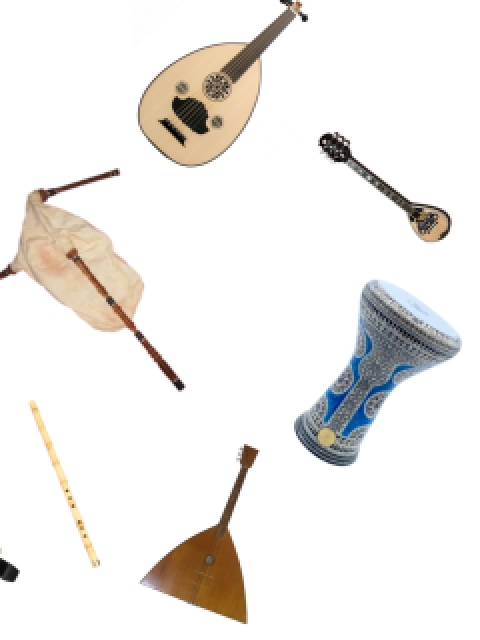
This webinar is the third in a six-part series, The Arts of Eastern Europe and Eurasia, designed to support educators in bringing the arts of Russia, Eastern Europe, and Eurasia into their classrooms. This session focuses on practical strategies for incorporating the region’s rich musical traditions into K–12 teaching. Participants will explore both traditional and popular musical forms and genres, using sound as a lens to illuminate broader cultural, historical, and social themes. The webinar features listening examples, adaptable classroom activities, and cross-curricular approaches that connect music to subjects such as literature, geography, and history.
Please register to join us for an engaging session filled with ready-to-use resources and creative ideas for introducing students to the diverse musical traditions of Eastern Europe and Eurasia.
Monday, December 8
Russian program students: Are you looking to practice Russian? Stop by the Global Hub on Mondays and Wednesdays from 1-3 pm, starting on October 6 and ending December 10, to meet with Russian tutors and prepare for tests, get help with homework, and more.
Tuesday, December 9
Attention: Undergraduate students! Are you looking to gain experience that will help prepare you for a globally-connected job market? Stop by Drop-In Hours to learn more about getting the Global Distinction added to your academic transcript, receiving special recognition at graduation, and standing out to prospective employers!
Wednesday, December 10
Russian program students: Are you looking to practice Russian? Stop by the Global Hub on Mondays and Wednesdays from 1-3 pm, starting on October 6 and ending December 10, to meet with Russian tutors and prepare for tests, get help with homework, and more.
Thursday, January 8

This session focuses on the ancient tradition of pysanky (decorated eggs) in Ukraine. It discusses the history and process of making pysanky as well as the fascinating symbolism in the designs, tracing the change pysanky symbolism throughout cultural shifts in Ukraine. The session also introduces participants to digital resources on pysanky including sample lesson plans that show educators how they can use pysanky in a variety of classroom contexts.
This webinar is the fourth in a six-part webinar series, The Arts of Eastern Europe and Eurasia, designed to support K-14 educators in bringing the vibrant and diverse artistic traditions of Russia, Eastern Europe, and Eurasia into the classroom. Each 90-minute session will spotlight a different art form—including music, dance, literature, visual arts, cultural artifacts, and theater/film—offering both historical and cultural context as well as practical classroom strategies. Use the registration form to register for one or more of these events.
Thursday, January 22
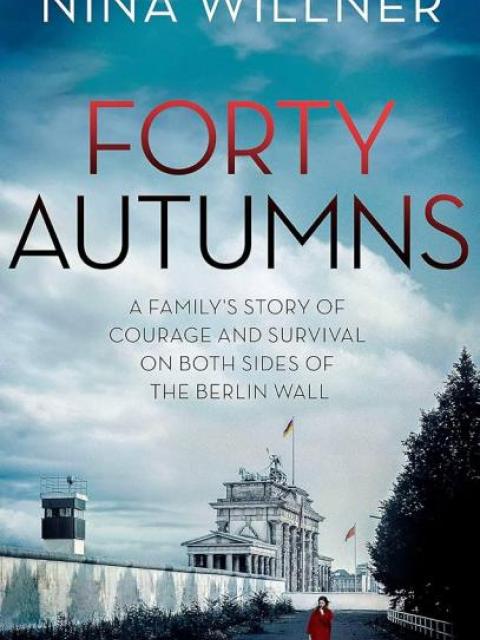
This professional development workshop series is designed for K-12 educators seeking to deepen their understanding of global issues through literature. This year, we will explore the theme of “The U.S. in the World.” Through global and regional perspectives, we will discuss narratives of a “Global United States,” where the U.S. role in the world and its relationship with other countries and regions is informed by transnational narratives and dialogues shaped by global trends such as migration, environmental issues, human rights, and human conditions. By exploring compelling stories from diverse cultural perspectives, educators will gain insights into the complexities of this theme, its impact on individuals and communities, and how to engage students in meaningful discussions around these topics.
Each session features a carefully selected book, paired with historically contextualized presentations, interactive discussions, teaching strategies, and cross-disciplinary activities to inspire classroom implementation.
The January 22, 2026 workshop will focus on the book, "Forty Autumns," by Nina Willner.
Sessions this year will take place virtually on Thursday evenings from 6:00-7:30 p.m. (ET). Three Act 48 credit hours (for PA educators) and a copy of the book are provided for each session.
For more information and to register, please go to: https://www.ucis.pitt.edu/global/GILS .
Tuesday, February 3
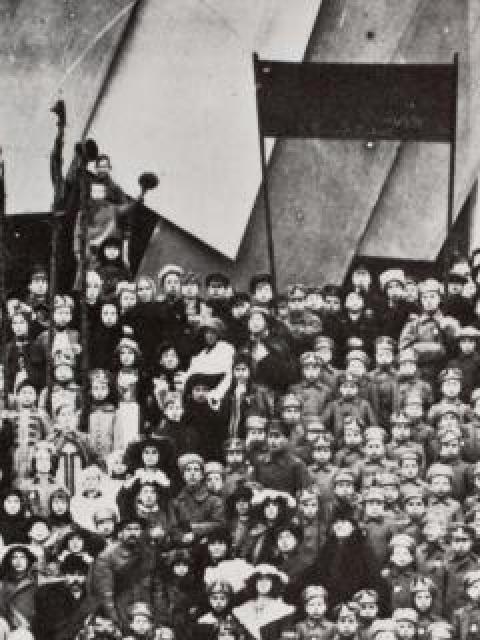
This webinar is the fifth in a six-part series, The Arts of Eastern Europe and Eurasia, designed to help K-14 educators integrate Russian, Eurasian, and Eastern European arts into their classrooms. It explores the influential and enduring role of theater in this region, where theatergoing remains an ordinary, affordable, and deeply valued cultural practice. From the collapse of empires during World War I to the repressions of the Communist era, and from the transformations of a globalized Europe to Russia’s ongoing war against a NATO- and EU-aligned neighbor, theater has consistently served as a resilient artistic and political force. Led by Dr. Alisa Ballard Lin, the session highlights several theatrical productions that reveal the dynamic intersection of art and politics over the past century. Each production has been selected for its accessibility and pedagogical value, with translated plays, photographs, video materials, and scholarly commentary readily available for classroom use.
Please join us for an engaging and practical session filled with insights, resources, and inspiration for bringing the rich theatrical traditions of Eastern Europe into your teaching.
Friday, February 6 to Saturday, February 7
Tuesday, March 3
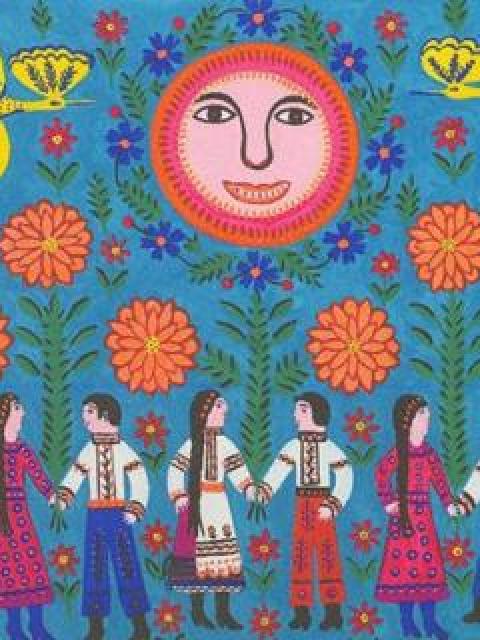
How does art preserve memory, sustain cultural heritage, and shape national identity—especially during times of conflict?
This sixth and final webinar in The Arts of Eastern Europe and Eurasia: A Webinar Series for Educators explores how artistic expression functions as a living record of cultural memory. Through case studies from Russia, Ukraine, and the United States, we will examine how art and culture are mobilized as tools of influence, identity, and messaging, particularly in moments of war, political upheaval, and societal change.
Designed for K-14 educators, this session offers practical insights and classroom-ready materials that illuminate the power of memory, creativity, and cultural heritage in shaping both historical and contemporary narratives. Participants will also develop strategies to help students think critically, recognize disinformation, and better understand the intersections of art, identity, and politics.
Friday, March 20 to Sunday, March 22
The University of Pittsburgh's Center for Russian, East European, and Eurasian Studies, the European Studies Center, and the Graduate Organization for the Study of Europe and Central Asia join Yale University's Macmillan Center to host the 2026 REEESNe Student Conference. This FREE student conference will bring together undergraduate and Master's-level students from the northeast and beyond. The event will feature panels of student research papers, roundtables for presenting student experiences (study abroad, internships, volunteering, etc.), and a professionalization panel with alumni, who apply REEES expertise in a diversity of careers.
Application Deadline: December 12, 2025
